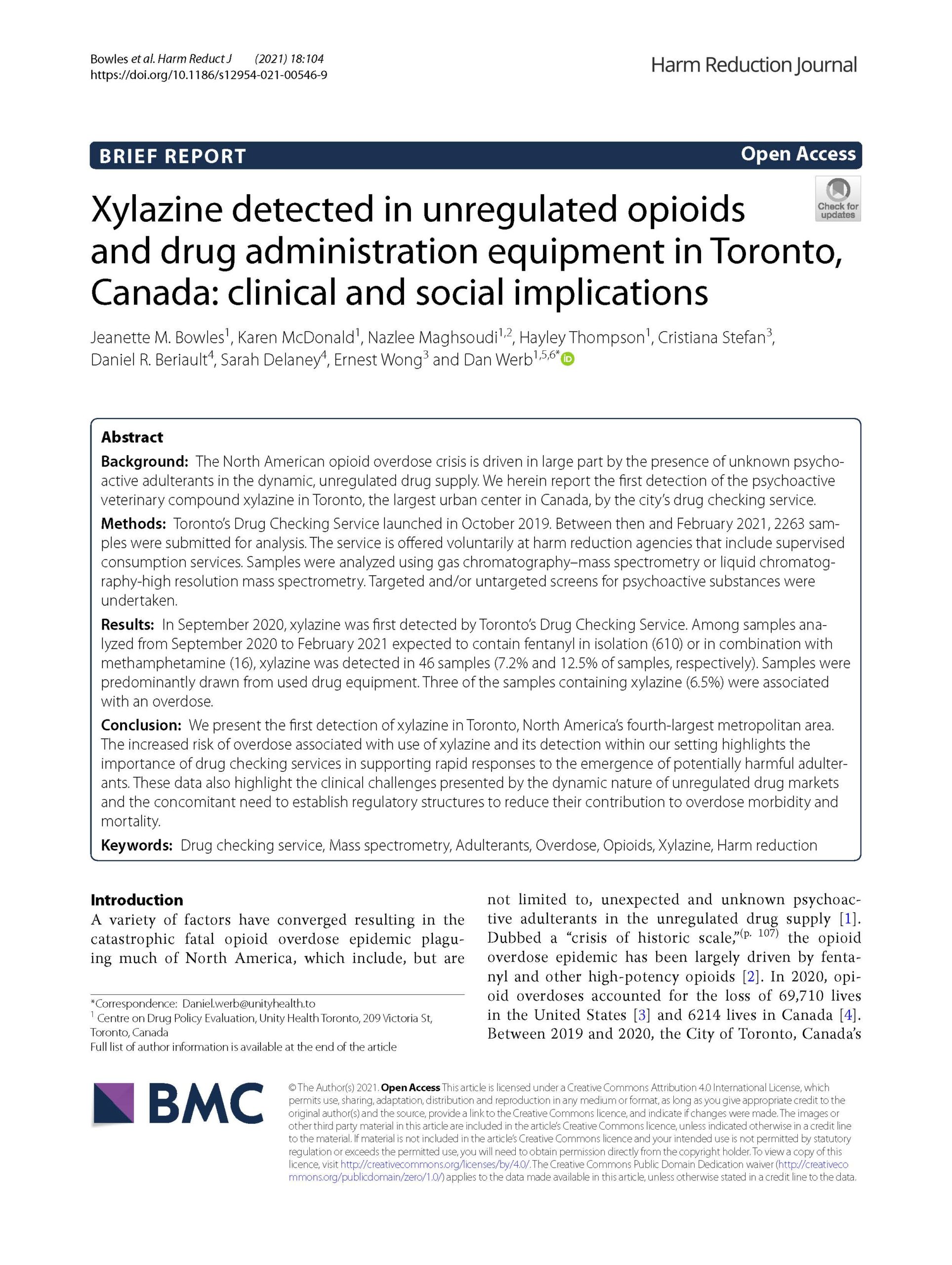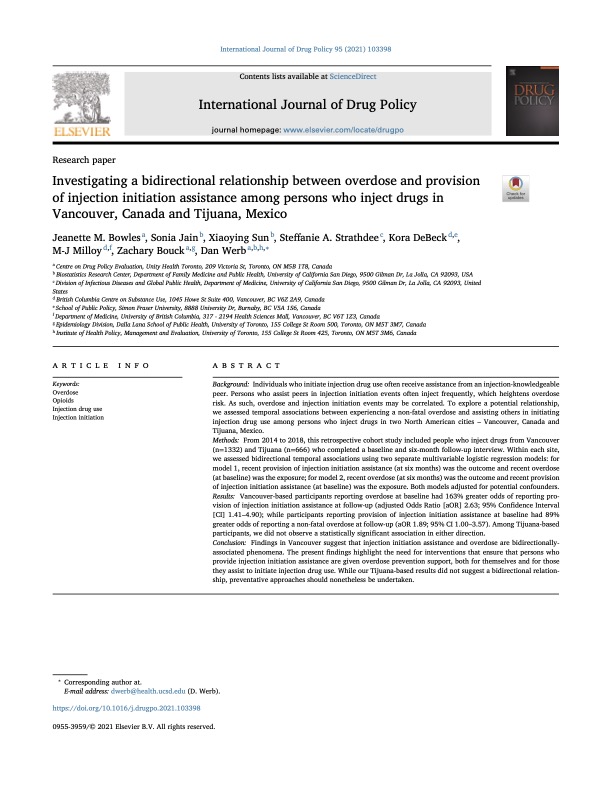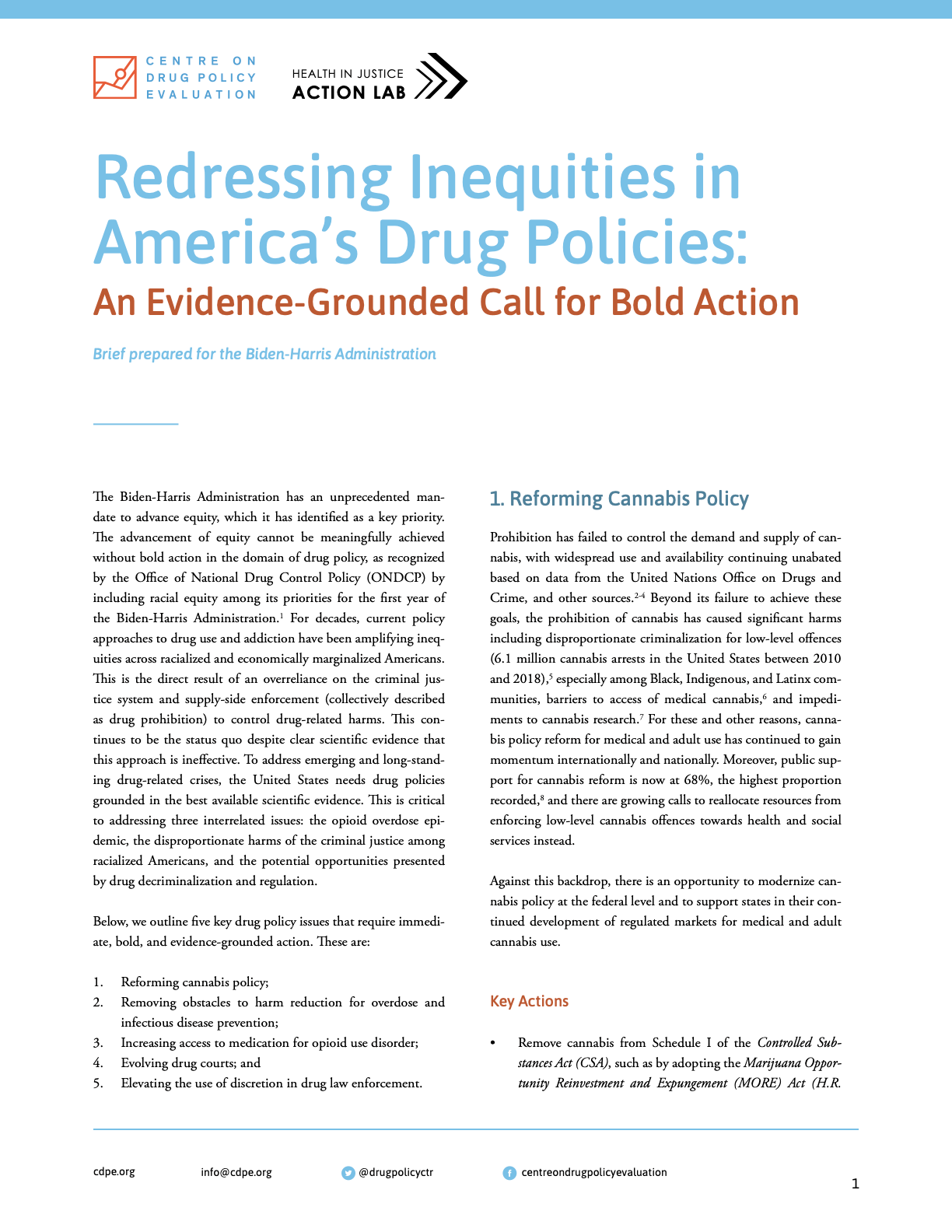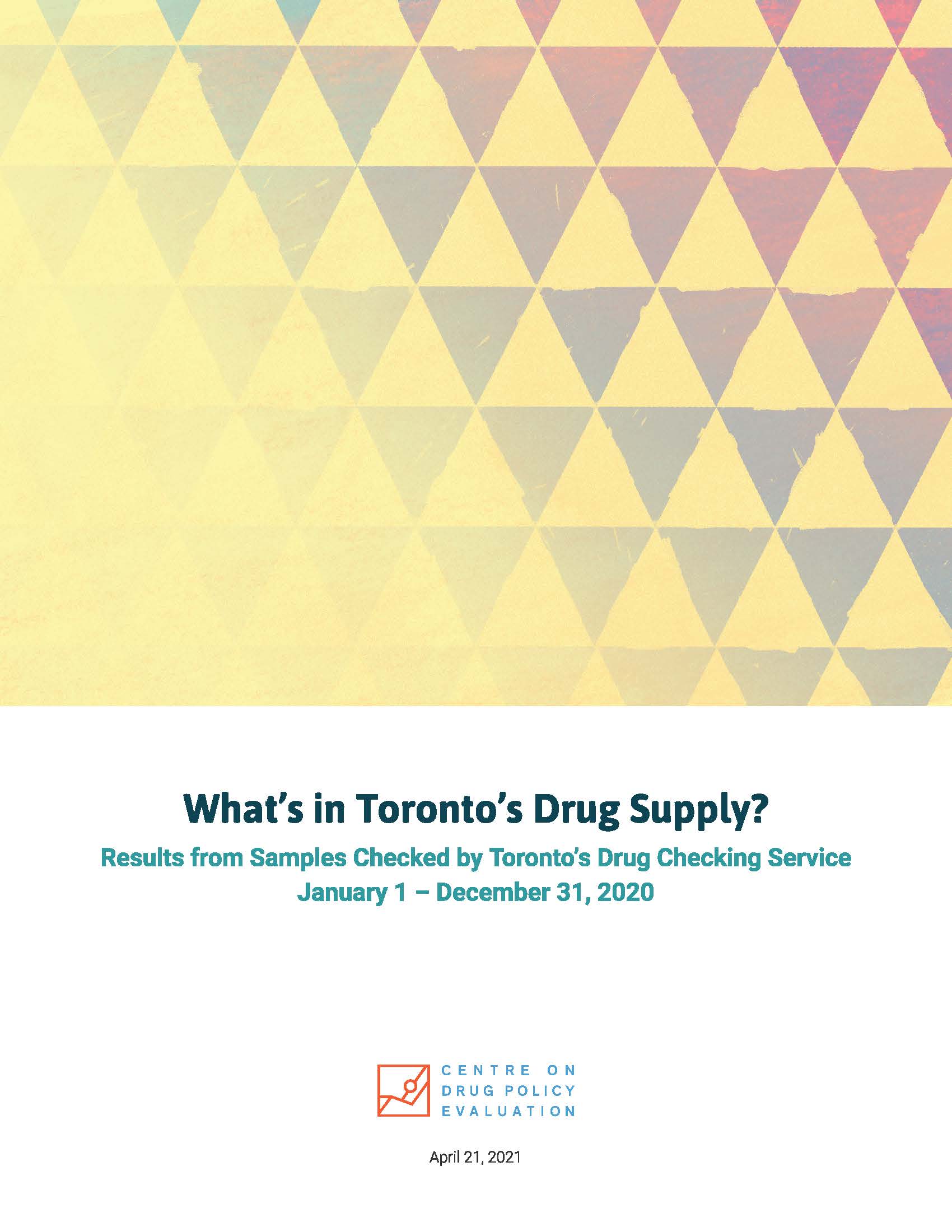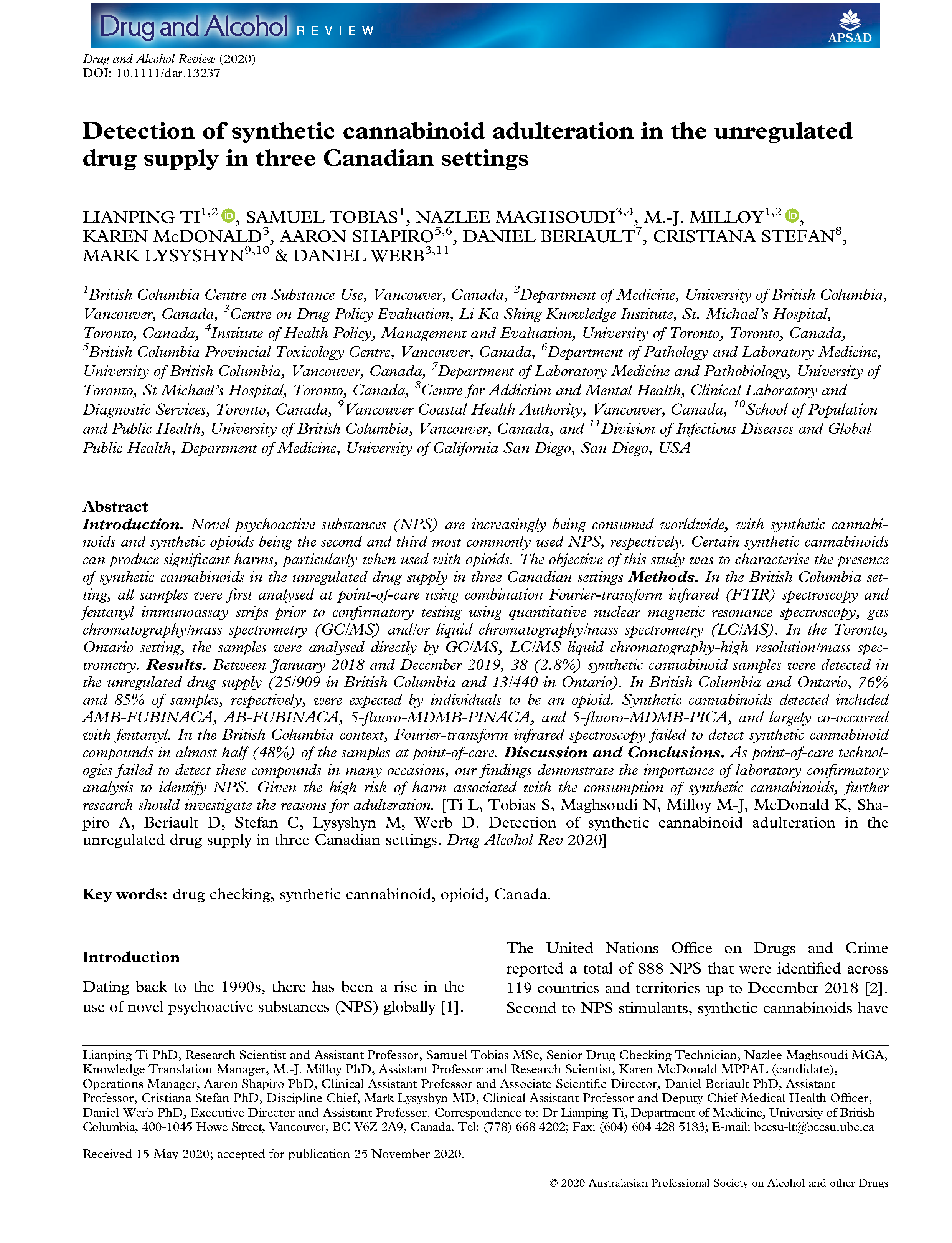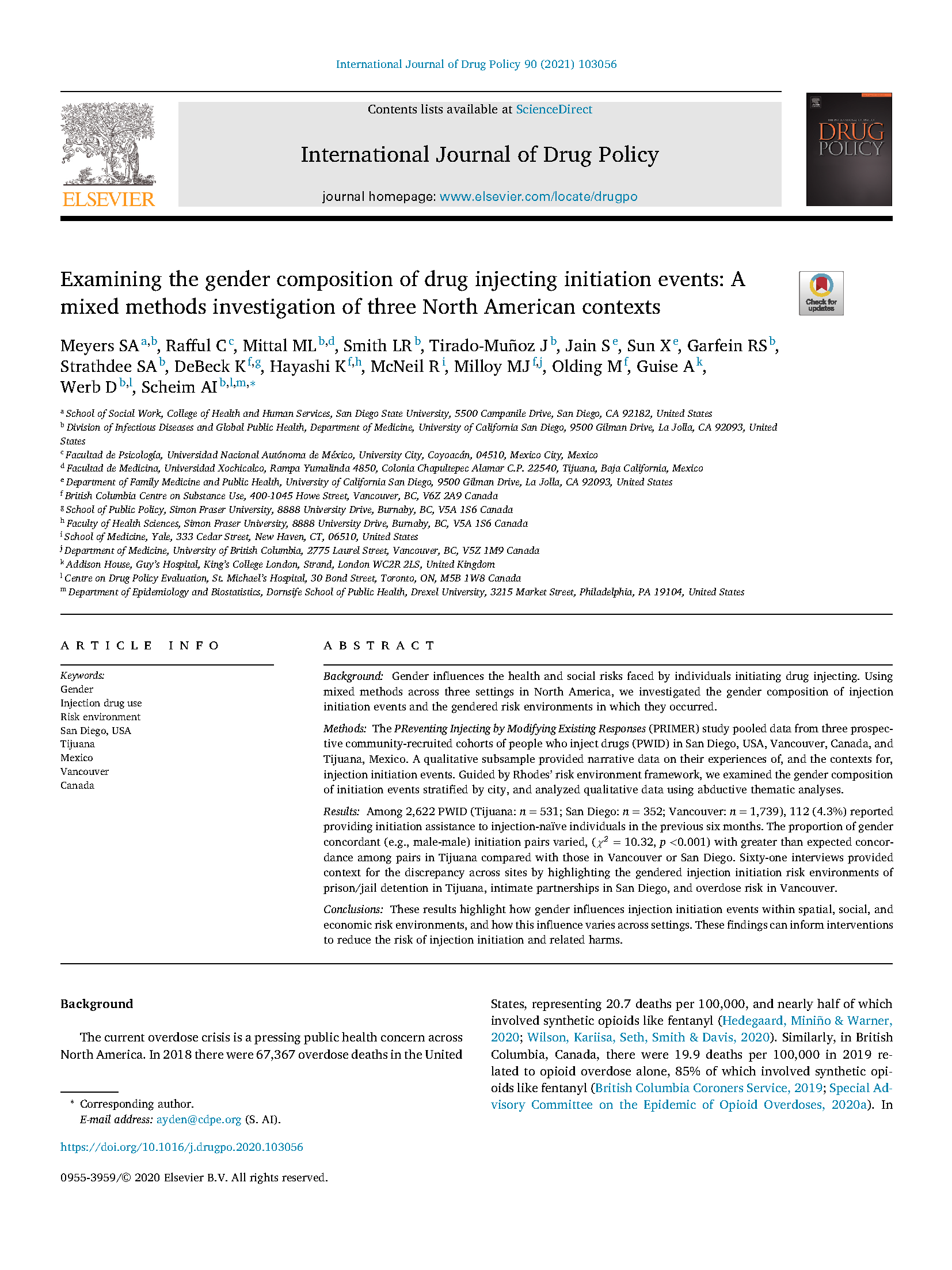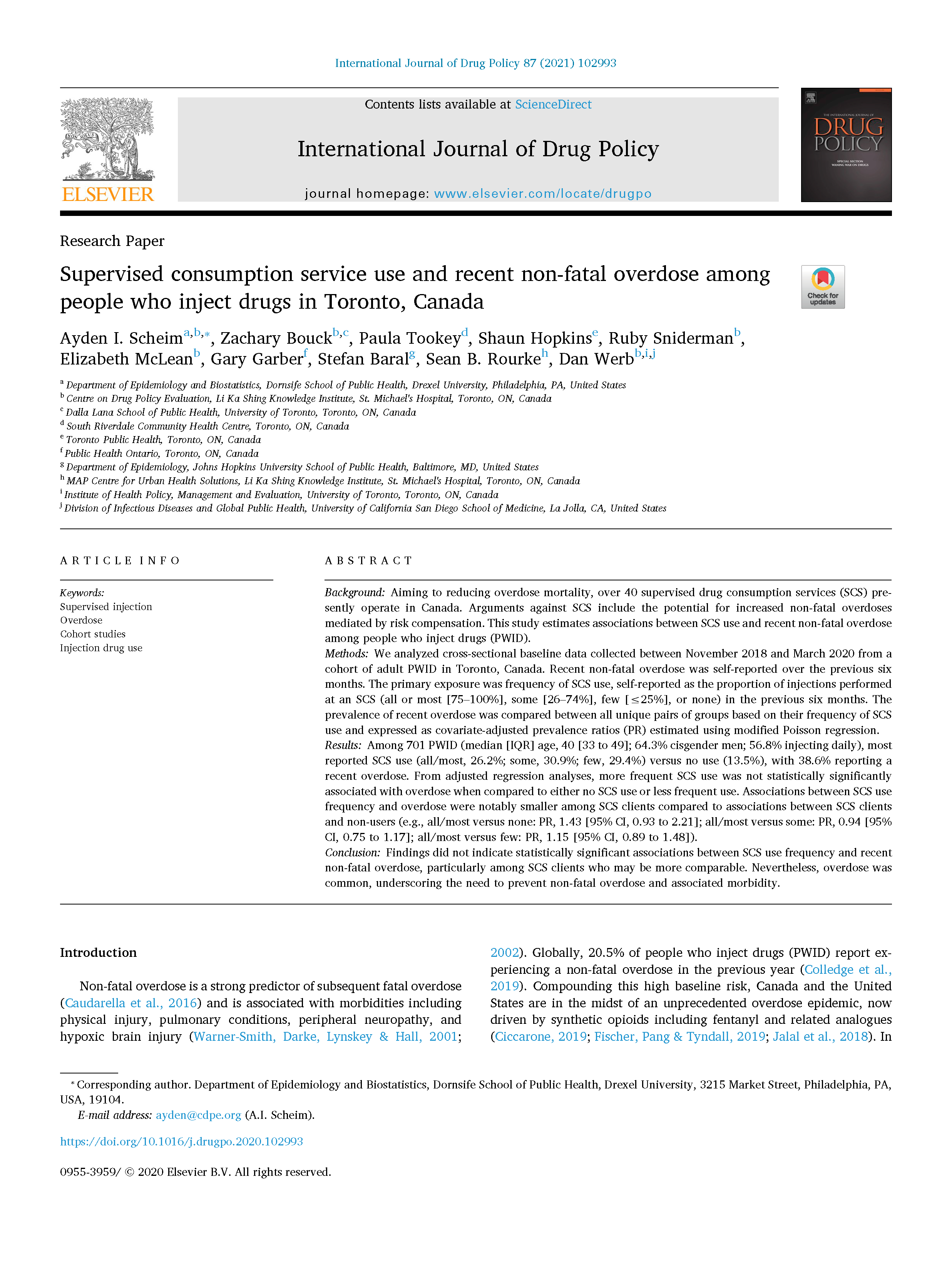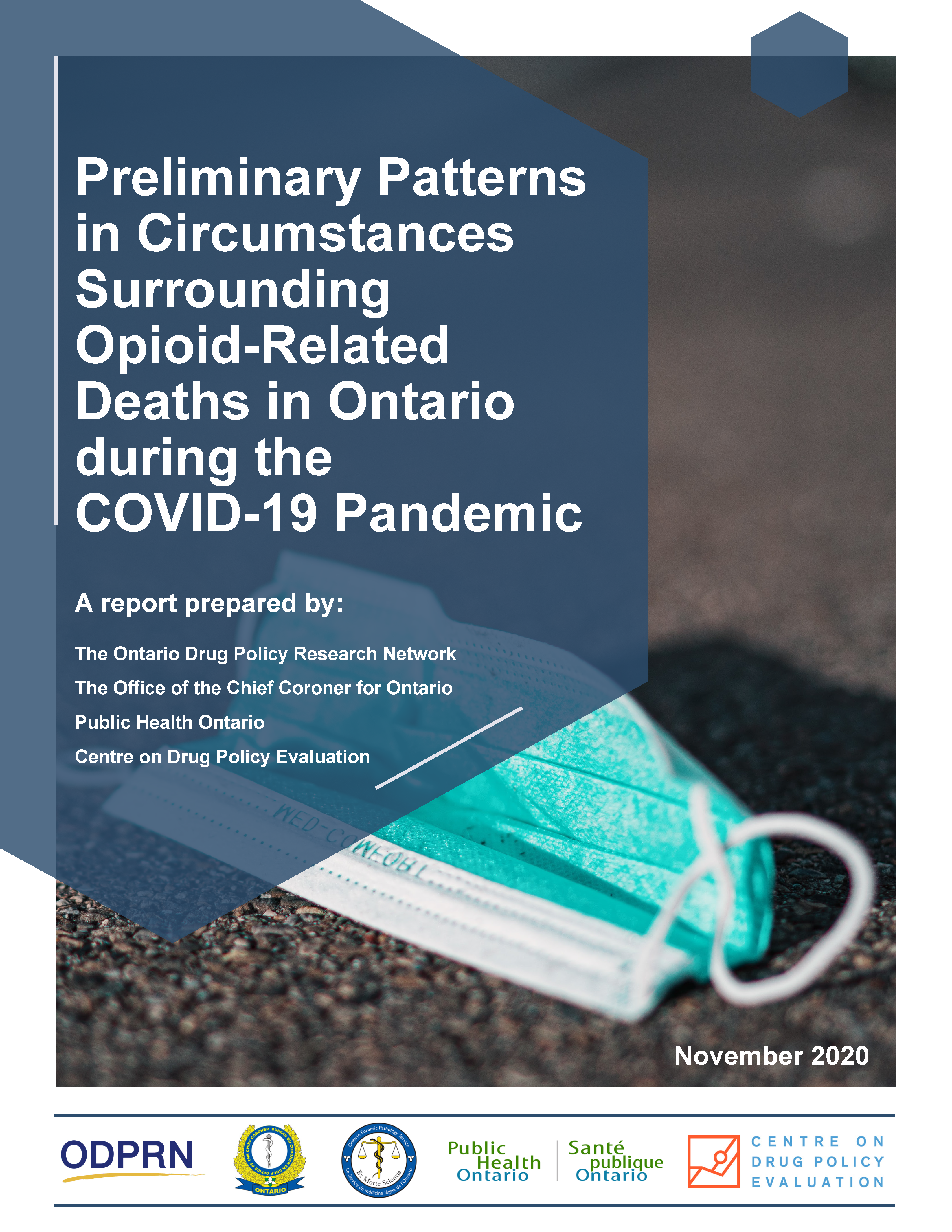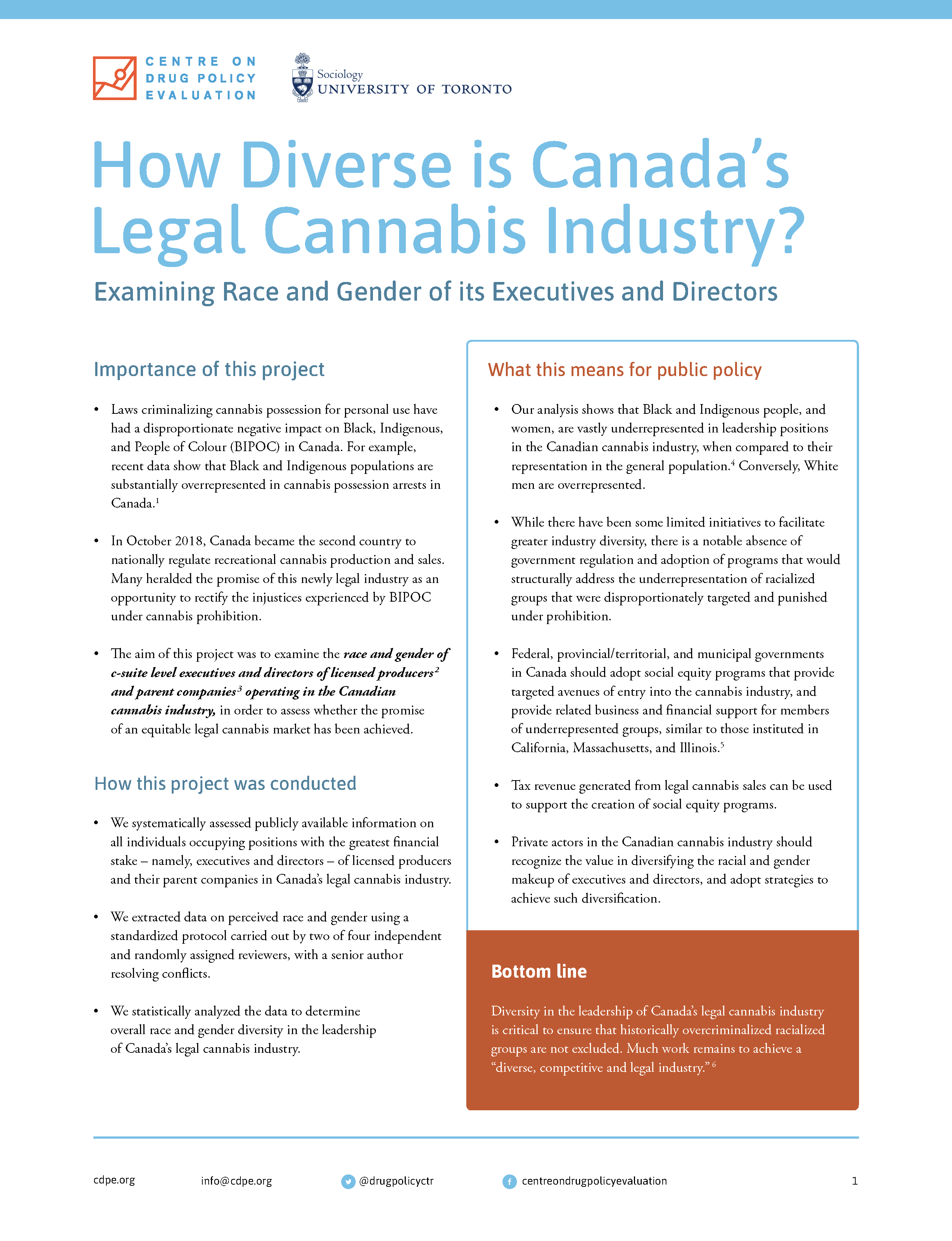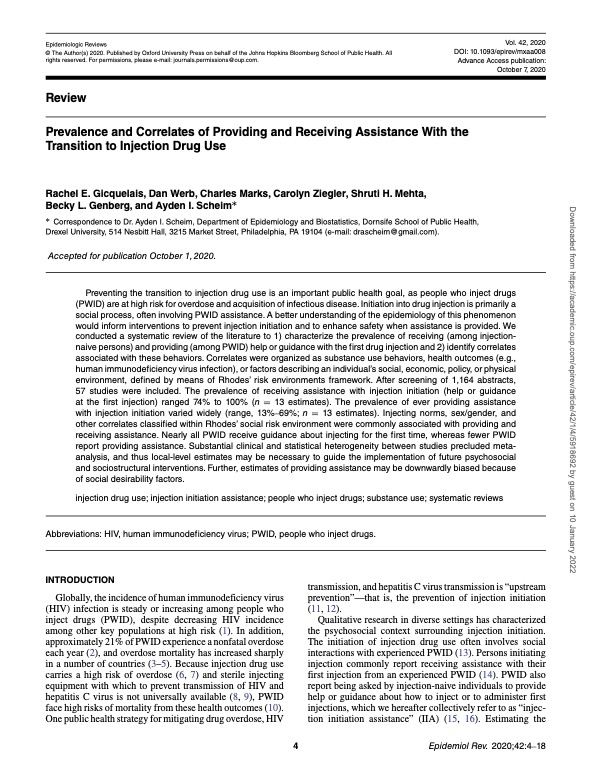Publications
The CDPE adheres to the highest standards of peer-reviewed scientific research and all research products are externally peer-reviewed by scientists or via leading scientific journals. To request a copy of any publication that is not open access, please email info@cdpe.org.
as part of Piloting and evaluating drug checking services in Toronto, Ontario
We report the first detection of the psychoactive veterinary compound xylazine in Toronto, the largest urban center in Canada, by the city’s drug checking service.
View publicationas part of Preventing Injecting by Modifying Existing Responses (PRIMER)
To explore a potential relationship between overdose and injection initiation, we assessed temporal associations between experiencing a non-fatal overdose and assisting others in initiating injection drug use among persons who inject drugs in two North American cities - Vancouver, Canada and Tijuana, Mexico.
View publicationas part of Policy Impact Unit
In this brief for the Biden-Harris Administration, the CDPE and the Health in Justice Action Lab outline key actions to enhance the equity and effectiveness of drug policy in the United States.
View publicationas part of Piloting and evaluating drug checking services in Toronto, Ontario
Between January 1 and December 31, 2020, 1657 samples were checked using mass spectrometry technologies (gas- and liquid-chromatography). This report details the results from the analysis of those samples.
View publicationas part of Piloting and evaluating drug checking services in Toronto, Ontario
The objective of this study was to characterise the presence of synthetic cannabinoids in the unregulated drug supply in three Canadian settings.
View publicationas part of Preventing Injecting by Modifying Existing Responses (PRIMER)
Using mixed methods across three settings in North America, we investigated the gender composition of injection initiation events and the gendered risk environments in which they occurred.
View publicationas part of Integrated Supervised Injection Services Evaluation in Toronto, Ontario
This study examined associations between SCS use and non-fatal overdose among PWID in Toronto, Ontario, Canada amidst the current opioid overdose epidemic, drawing on baseline data from a cohort of PWID including individuals who do and do not use SCS.
View publicationas part of COVID-19 Rapid Assessment
The Ontario Drug Policy Research Network, the Office of the Chief Coroner for Ontario/the Ontario Forensic Pathology Service, Public Health Ontario, and the CDPE have published a report analyzing trends in opioid-related deaths and comparing circumstances of death between two groups: a COVID-19 pandemic cohort and a pre-pandemic cohort.
View publicationas part of Policy Impact Unit
The aim of this project was to examine the race and gender of c-suite level executives and boards of directors of licensed cannabis producers and their parent companies operating in the Canadian cannabis industry, in order to assess whether the promise of an equitable legal cannabis market has been achieved.
View publicationas part of Systematic Reviews on Drug Policy
Preventing the transition to injection drug use is an important public health goal, as people who inject drugs (PWID) are at high risk for overdose and acquisition of infectious disease. Initiation into drug injection is primarily a social process, often involving PWID assistance. A better understanding of the epidemiology of this phenomenon would inform interventions to prevent injection initiation and to enhance safety when assistance is provided.
View publication